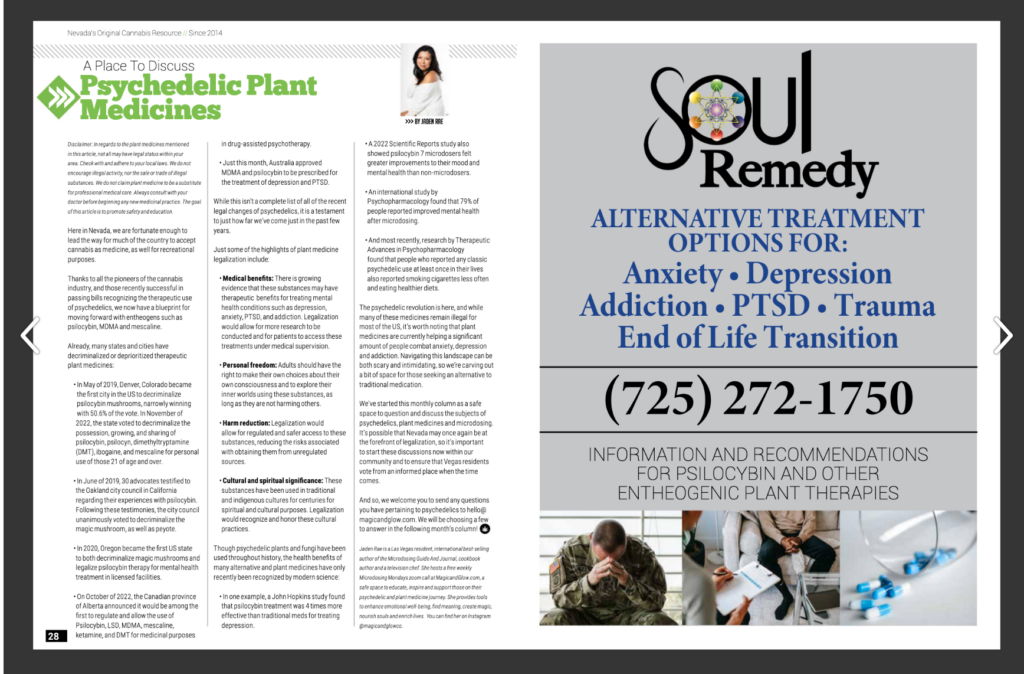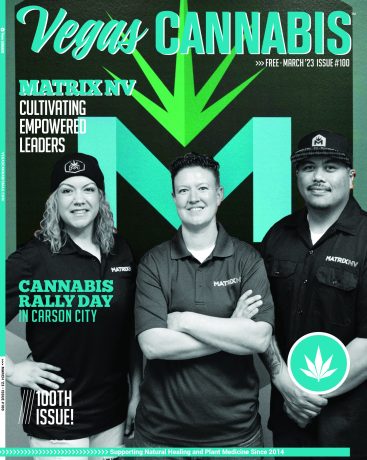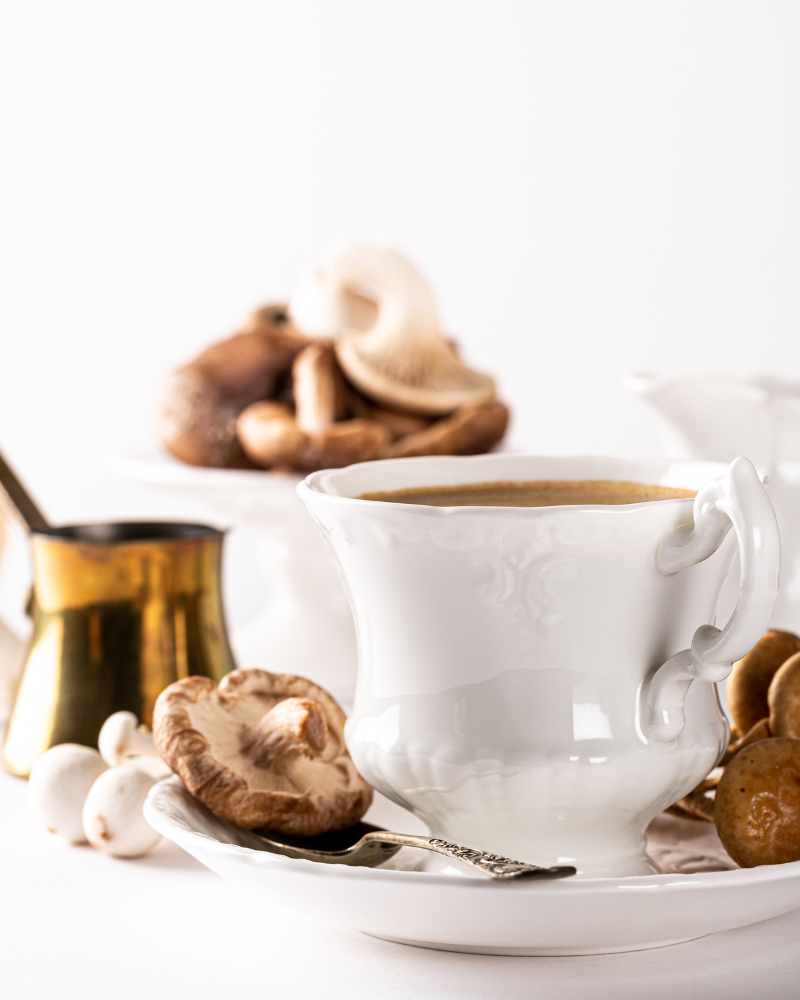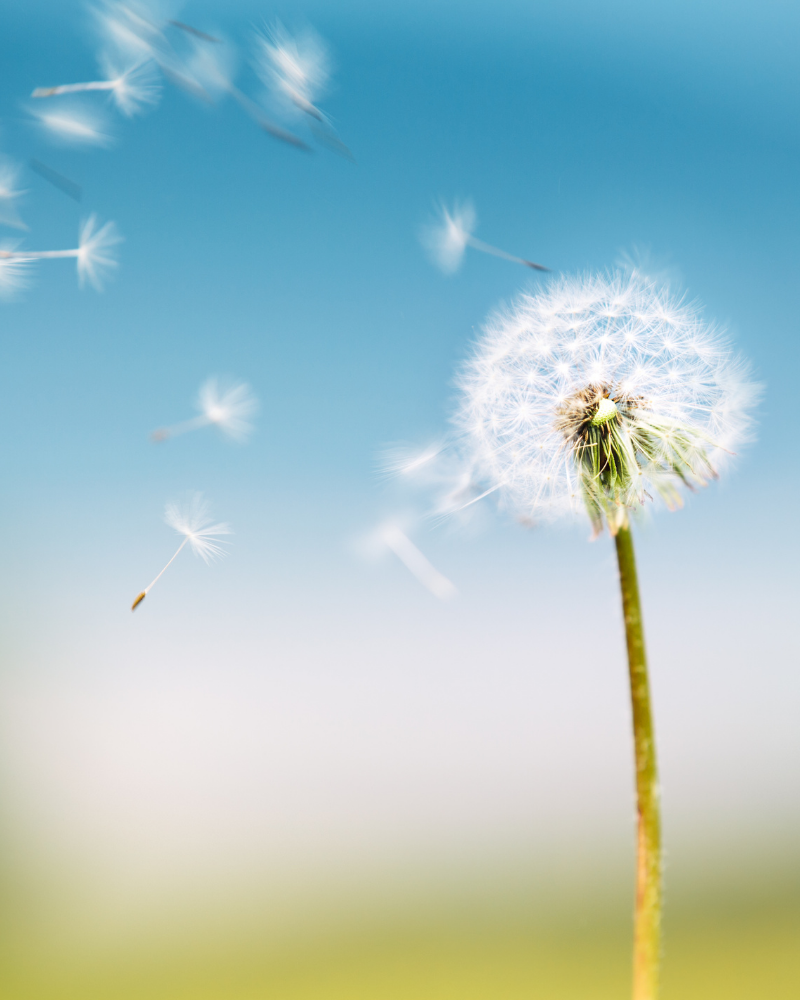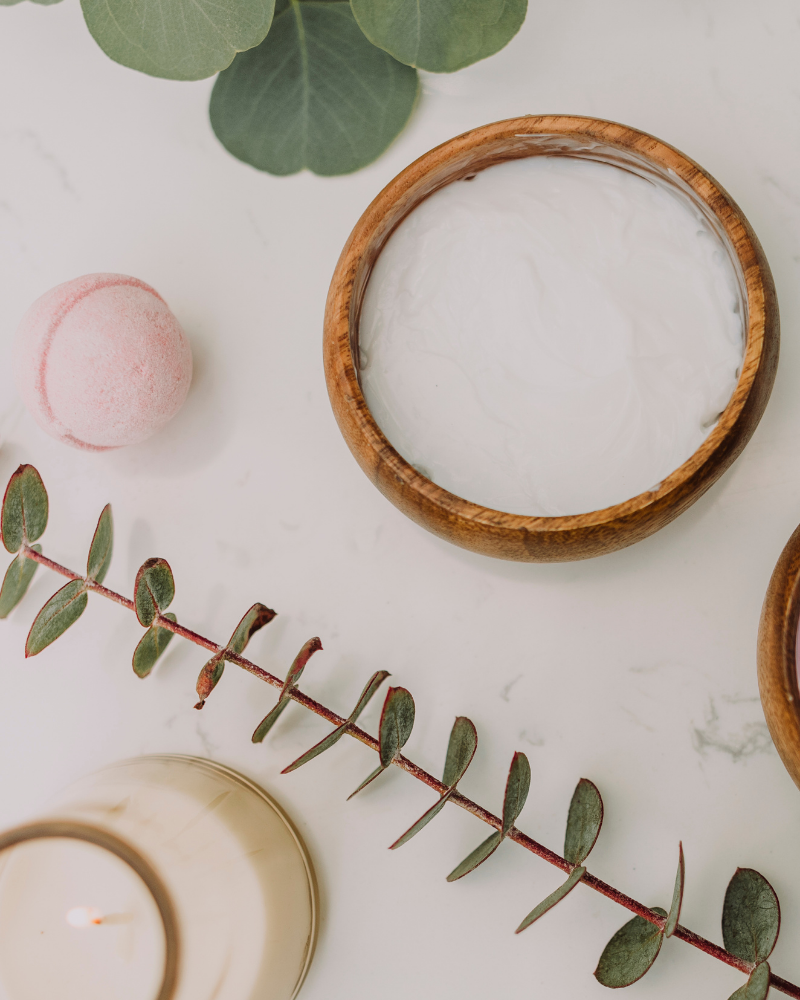Psychedelic Plant Medicines
A Place To Discuss
By: Jaden Rae
Disclaimer: In regards to the plant medicines mentioned in this article, not all may have legal status within your area. Check with and adhere to your local laws. We do not encourage illegal activity, nor the sale or trade of illegal substances. We do not claim plant medicine to be a substitute for professional medical care. Always consult with your doctor before beginning any new medicinal practice. The goal of this article is to promote safety and education.
Here in Nevada, we are fortunate enough to lead the way for the much of the country to accept cannabis as medicine, as well for recreational purposes.
Thanks to all the pioneers of the cannabis industry, and those recently successful in passing bills recognizing the therapeutic use of psychedelics, we now have a blueprint for moving forward with entheogens such as psilocybin, MDMA and mescaline.
Already, many states and cities have decriminalized or de-prioritized therapeutic plant medicines:
- In May of 2019, Denver, Colorado became the first city in the US to decriminalize psilocybin mushrooms, narrowly winning with 50.6% of the vote. In November of 2022, the state voted to decriminalize the possession, growing, and sharing of psilocybin, psilocyn, dimethyltryptamine (DMT), ibogaine, and mescaline for personal use of those 21 of age and over.
- In June of 2019, 30 advocates testified to the Oakland city council in California regarding their experiences with psilocybin. Following these testimonies, the city council unanimously voted to decriminalize the magic mushroom, as well as peyote.
- In 2020, Oregon became the first US state to both decriminalize magic mushrooms and legalize psilocybin therapy for mental health treatment in licensed facilities.
- On October of 2022, the Canadian province of Alberta announced it would be among the first to regulate and allow the use of Psilocybin, LSD, MDMA, mescaline, ketamine, and DMT for medicinal purposes in drug-assisted psychotherapy.
- Just this month, Australia approved MDMA and psilocybin to be prescribed for the treatment of depression and PTSD.
While this isn’t a complete list of all of the recent legal changes of psychedelics, it is a testament to just how far we’ve come just in the past few years.
Just some of the highlights of plant medicine legalization include:
- Medical benefits: There is growing evidence that these substances may have therapeutic benefits for treating mental health conditions such as depression, anxiety, PTSD, and addiction. Legalization would allow for more research to be conducted and for patients to access these treatments under medical supervision.
- Personal freedom: Adults should have the right to make their own choices about their own consciousness and to explore their inner worlds using these substances, as long as they are not harming others.
- Harm reduction: Legalization would allow for regulated and safer access to these substances, reducing the risks associated with obtaining them from unregulated sources.
- Cultural and spiritual significance: These substances have been used in traditional and indigenous cultures for centuries for spiritual and cultural purposes. Legalization would recognize and honor these cultural practices.
Though psychedelic plants and fungi have been used throughout history, the health benefits of many alternative and plant medicines have only recently been recognized by modern science:
- In one example, a John Hopkins study found that psilocybin treatment was 4 times more effective than traditional meds for treating depression.
- A 2022 Scientific Reports study also showed psilocybin 7 microdosers felt greater improvements to their mood and mental health than non-microdosers.
- An international study by Psychopharmacology found that 79% of people reported improved mental health after microdosing.
- And most recently, research by Therapeutic Advances in Psychopharmacology found that people who reported any classic psychedelic use at least once in their lives also reported smoking cigarettes less often and eating healthier diets.
The psychedelic revolution is here, and while many of these medicines remain illegal for most of the US, it’s worth noting that plant medicines are currently helping a significant amount of people combat anxiety, depression and addiction. Navigating this landscape can be both scary and intimidating, so we’re carving out a bit of space for those seeking an alternative to traditional medication.
We’ve started this monthly column as a safe space to question and discuss the subjects of psychedelics, plant medicines and microdosing. It’s possible that Nevada may once again be at the forefront of legalization, so it’s important to start these discussions now within our community and to ensure that Vegas residents vote from an informed place when the time comes.
And so, we welcome you to send any questions you have pertaining to psychedelics to [email protected]. We will be choosing a few to answer in the following month’s column!
If you enjoyed this article, be sure to also check out our Sip Nibble & Trip column where we I teach you how to make delicious infused recipes.
About the Author:
Jaden Rae is a Las Vegas resident, international best-selling author of the Microdosing Guide And Journal, cookbook author and a television chef. She hosts a free weekly Microdosing Mondays zoom call at MagicandGlow.com, a safe space to educate, inspire and support those on their psychedelic and plant medicine journey. She provides tools to enhance emotional well-being, find meaning, create magic, nourish souls and enrich lives. Jaden has been featured on the Today Show, The Early Show, Martha Stewart Radio, Fox Business News, Parents Magazine, and more. You can find her on Instagram @magicandglowco.
Read The Full Article On Vegas Cannabis Magazine

